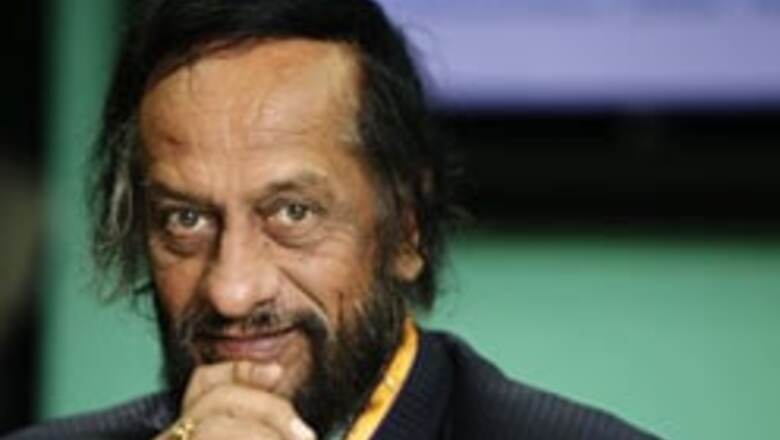
views
New Delhi: Thanks to recent announcements by the US and China, there may be a deal at this month's Copenhagen climate summit, Intergovernmental Panel on Climate Change (IPCC) chief R K Pachauri said on Tuesday. This would put more pressure on India, which needed to quantify the steps it was taking to reduce global warming, he added.
"India is at the crossroads" on this issue, Pachauri said at a press conference in New Delhi, urging Prime Minister Manmohan Singh to attend the final two days of the December 7-18 climate summit in Copenhagen.
"This will be important, as it will signify that India is a deal maker and not a deal breaker," he said.
Pachauri predicted that US President Barack Obama's announcement that his country would cut greenhouse gas (GHG) emissions by 17 per cent by 2020, compared to 2005, and China's announcement that it would reduce the GHG-intensity of its economy by 40-45 per cent by 2020, compared to 2005, would put more pressure on India to come up with similar quantitative commitments.
"The Copenhagen summit also gives us an opportunity to look at India's long-term future," added the head of the IPCC -- the group of over 2,500 scientists worldwide that brings out the benchmark assessment reports on climate change.
Making a strong pitch for the country to shift towards renewable energy sources from fossil fuels, Pachauri said "India must bargain at Copenhagen for large-scale resources to finance its solar mission".
He laid down three criteria for success at Copenhagen -- first, a collective emission reduction target by industrialised countries by 2020, which he said would be "good if it was 20 per cent"; second, financial assistance to developing countries to cope with climate change effects; and third, transfer of green technologies cheap, perhaps through a technology fund.
"If this happens there will be enormous pressure on India to make commitments," Pachauri predicted. "India should then lay its National Action Plan on Climate Change (NAPCC) on the table. The cabinet has already cleared the solar mission (one of the eight missions under NAPCC), that should be a part of it."
"The NAPCC can be a binding commitment on the part of India as a back-up if other commitments (from industrialised countries) fall in place," he added. He agreed that other NAPCC mission plans had not been firmed up yet, but said if this was done, the reduction in India's GHG intensity could be worked out as an offshoot of NAPCC. "It's simple arithmetic."
While saying "no country will reveal its cards upfront" at the start of the Copenhagen summit, Pachauri repeatedly pointed out that moving towards a greener economy was good for India in the long run.
GHG emissions -- mainly carbon dioxide -- is causing climate change, which is already reducing farm output, making droughts, floods and storms more frequent and more severe, and raising the seal level.




















Comments
0 comment